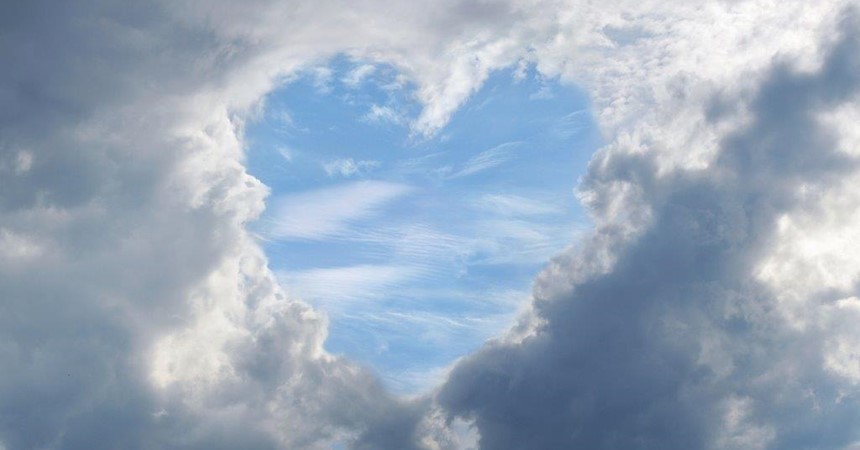Talk of endings is often a downer. If you see a scruffy man holding up a placard saying, “The end is nigh”, you feel just a bit nervous.
Nor do you expect a movie about the end of the world to finish with a party, at which everyone thanks one another before walking off, hand in hand, to heaven. These movies usually feature battles with monsters, demons, mutants or aliens, blood by the bucketful and sudden death by the millions. They still attract more viewers than films with happy endings.
This suggests that most of us don’t want things to end, but we know that life changes and that things we treasure do come to an end. Paddocks and creeks we played in as children now have houses built over them. Friendships we treasured die through misunderstanding or through growing apart. And we now know that the world we live in will turn on our grandchildren if we do not care for it.
We know, too, that our own lives on earth will end, as those of our ancestors did. We can see much more clearly what we shall lose when we die than what we might gain. So it is not surprising that ends seem grim.
Nor does all church preaching help much. Once priests preached on the Four Last Things. Even the name sounds ominous. The Four Last Things were Death, Judgement, Heaven and Hell. Thinking of death makes us a little fearful. The thought of judgement is intimidating, and the thought of hell inspires terror. Only heaven brings sunshine.
But when clouds settle on us, we don’t see too much sunshine. And because tales of doom are much more interesting than happy stories, preachers have feasted on stories of the fatal plane crash and of the young man who dies after committing his first mortal sin. They have also described God as a black-robed judge who demands an account of all we do. If we are unprepared, God help us. And of course, they have also painted vivid pictures of hell, with its eternity, its despair, its flames and their attendant demons.
Set against these terrors, heaven seems desirable but also a let-down. Rest, coolness, God’s company, a comfortable mansion, reunion forever with the family and a banquet with the saints have their charms. But for all eternity? Compared with judgement and hell, heaven sounds a bit boring.
So what are we Catholics to make of the Four Last Things? First, that there are not really four last things. There is only one first and last thing: God’s love for each of us. Scripture tells us of a God who made the world to be a garden for human beings to water, mulch and nurture, and who made human beings out of love. The same God freed the people of Israel from slavery, and came in Jesus to join us, die for us and save us. God’s first word is love, last word is love, and we can rest in it. Nothing can resist God’s love, especially not demons, mutants or monsters. The world that began in love will end in love.
So death, judgement, heaven and hell are not the last things. They are only second last. The last is love. Death, of course, is formidable. Life is such a beautiful gift that to leave it is a great loss. We can all imagine the loss of leaving friends and families, no longer walking in the garden, no longer touching others in love.
We know little of what comes after death. But if we trust that life will triumph over death, death no longer is simply the end of life in this world but is also the beginning of life with God. Life after death is not earned, not a possession, but a gift. The God who loves us does not do transactions, but gives us everything as a gift.
This hope does not make the thought of death and the eventual cooling of our planet less scary. Our bodies are us, so we naturally resist leaving our precious bodily world.
If God’s first and last words are love, judgement is also less terrifying. God is besotted with us, gives us our lives and our world as a gift, and refuses to let us go, even when we refuse love. God is not a judge who sentences us if we break the law. God’s word is ‘yes!’ God does not judge after examining if we obeyed all his laws. God simply asks us if we remain open to love. We shall judge ourselves by turning away.
We enter heaven or hell by affirming the decision we make through our lives – to be open to God or to shut God out. Whether people actually do or can finally shut God out, we do not know. But we may trust that God will try to win people over.
Finally, what will heaven be like? We know that God promises us that we shall live together in a transformed world together that is beyond imagining. Paul compares it with the way seeds die and become flowers. Looking at the seed, we could imagine the flower. But nothing good in the seed or in our bodily lives will be lost, but will flower.
We also know that what we give of ourselves will help shape God’s future. Our love and care for the most vulnerable helps shape God’s world. Like all preachers, Jesus stresses the urgency of this through vivid imagery. He refers to the devil, to demons, to the rubbish tip outside Jerusalem, to fi re and to thirst, in order to get us going; to suggest the happiness to come. He speaks of banquets, of a wedding feast, of rich harvests and well-watered pastures.
We can leave the last word to St Paul, who says that when other things pass away, faith, hope and love will remain. And the greatest of these is love.






















































































